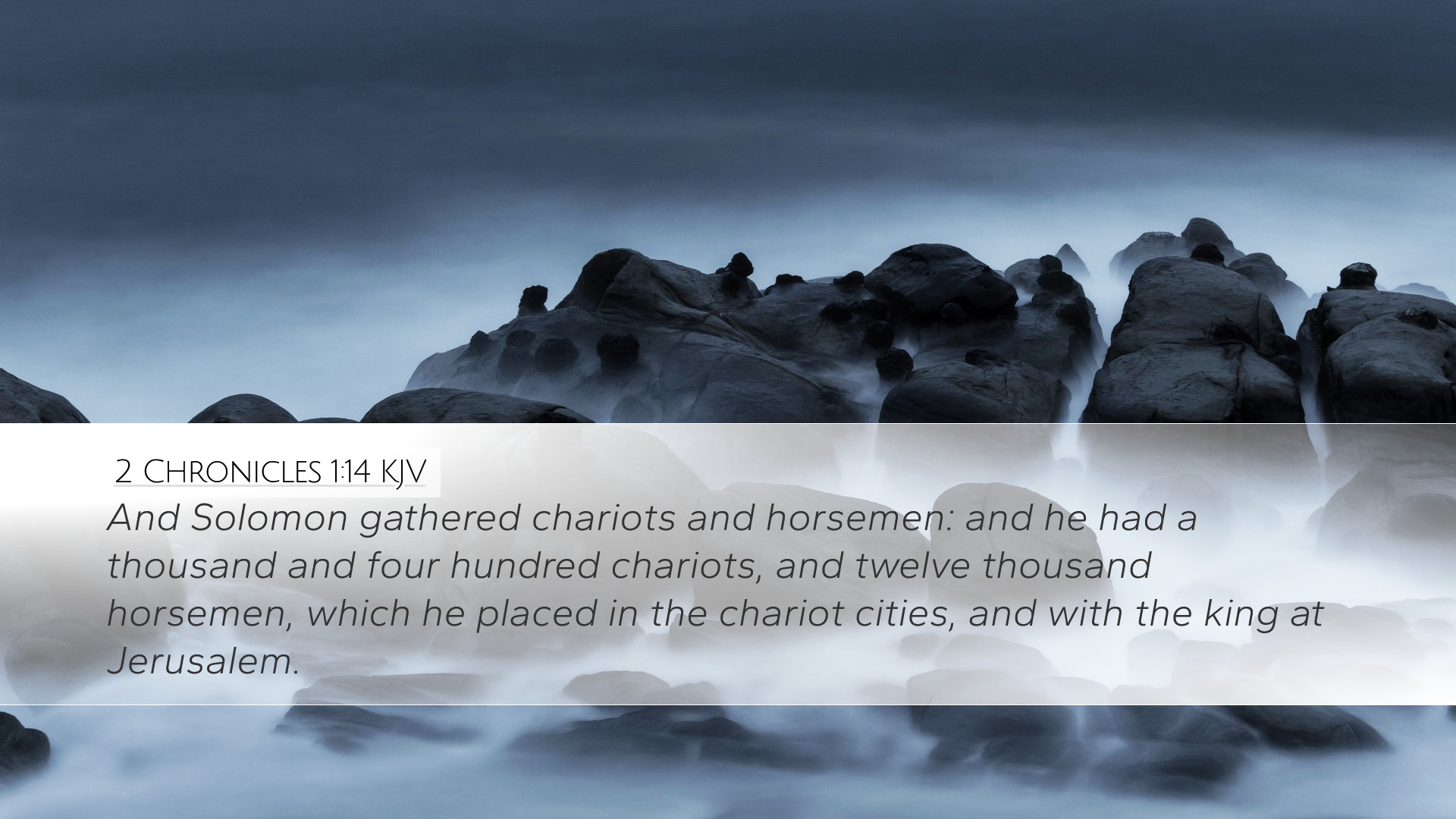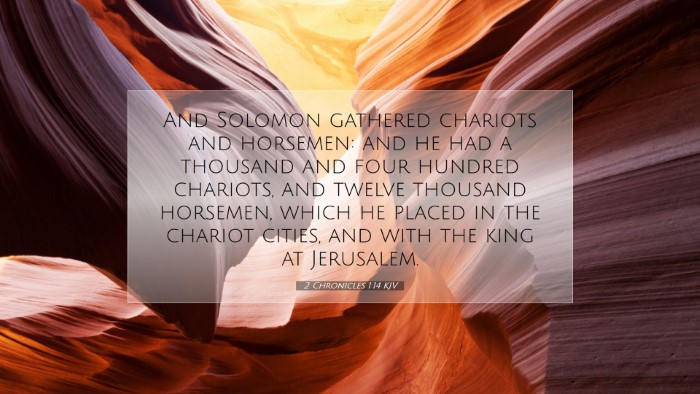Commentary on 2 Chronicles 1:14
Verse: "And he gathered chariots and horsemen; and he had a thousand and four hundred chariots, and twelve thousand horsemen, which he bestowed in the chariot cities, and with the king at Jerusalem." (2 Chronicles 1:14, KJV)
Introduction
This passage from 2 Chronicles provides insight into King Solomon's early reign and the establishment of his power. It highlights not only his wealth and resources but also the military might that he was assembling, which was crucial for maintaining the peace and security of the kingdom.
Contextual Background
The context of this verse is situated within Solomon's ascension to the throne. Following the death of his father, David, Solomon was tasked with building the temple and leading Israel. The gathering of chariots and horsemen demonstrates Solomon's strategic foresight in preparing for potential conflicts and consolidating his rule.
- Historical Significance: Chariots were a symbol of military strength during this time, representing both speed and power in warfare. The significant number of chariots Solomon gathered indicates his intention to establish Israel as a formidable presence in the region.
- Geopolitical Context: In the ancient Near East, the accumulation of military resources was vital for any ruler, especially in a territory characterized by potential threats from neighboring nations.
Commentary Insights
Matthew Henry's Commentary
Matthew Henry emphasizes the importance of Solomon's investments in military power as a means of securing peace and stability for his reign. He notes that while Solomon's wealth was vast, it was his wisdom and ability to govern that truly distinguished him. Henry additionally highlights the moral obligations of rulers to rely on God rather than solely on their military might.
Albert Barnes' Notes
Albert Barnes provides a detailed interpretation of the numbers mentioned in the text. He explains that the "fourteen hundred chariots" and "twelve thousand horsemen" reflect the extent of Solomon's military organization. These forces were likely not only for offensive purposes but also served to deter potential aggressors. Barnes points out that such an army would signify Israel's strength and support Solomon's broader goals, such as the construction of the temple.
Adam Clarke's Commentary
Adam Clarke goes further into the significance of the "chariot cities" where some of these forces were stationed. He posits that these cities served as fortified areas vital for defense and rapid mobilization in case of war. Clarke also ties Solomon’s military preparations to the prophetic significance concerning Israel’s future, depicting a transition from a nomadic people under David to a solidified nation under Solomon’s rule.
Theological Reflections
This verse invites deeper theological contemplation on the relationship between faith and power. It raises critical questions about the role of military strength in a ruler’s administration and its compatibility with a dependency on divine providence.
- Divine Sovereignty vs. Human Action: While Solomon took practical steps in assembling a powerful army, the underlying theological principle is the acknowledgment that true sovereignty lies with God.
- Righteous Leadership: Solomon's actions serve as a model of how leaders should prepare to govern effectively, balancing military readiness with a heart oriented towards God.
Practical Applications
The lessons from this verse are applicable to modern leaders—both spiritual and secular. The responsibility of harnessing resources for the sake of security and order should always align with ethical governance and reliance on God’s guidance.
- Preparedness: Leaders today can learn from Solomon's prudent planning in preparing for the future amidst uncertainties.
- Balance of Power: It is crucial to balance the efforts of human agency with an unwavering dependence on divine wisdom and instruction.
Conclusion
2 Chronicles 1:14 provides a rich tapestry for understanding the dynamics of Solomon's reign. As we reflect on his military preparations, let us recognize the importance of wisdom in leadership, the significance of our spiritual resources, and the ultimate sovereignty of God in guiding our paths.


